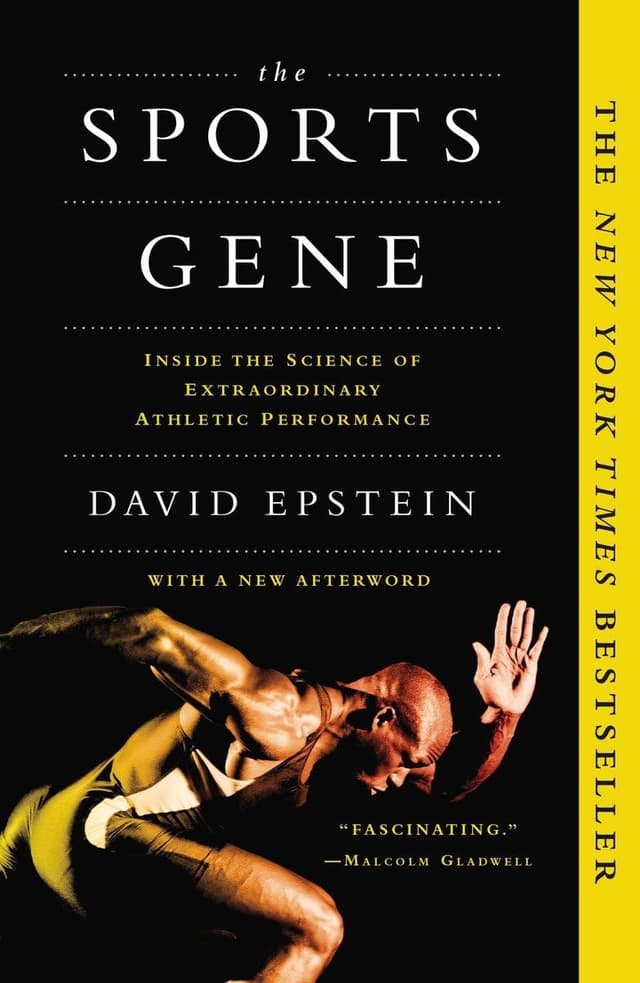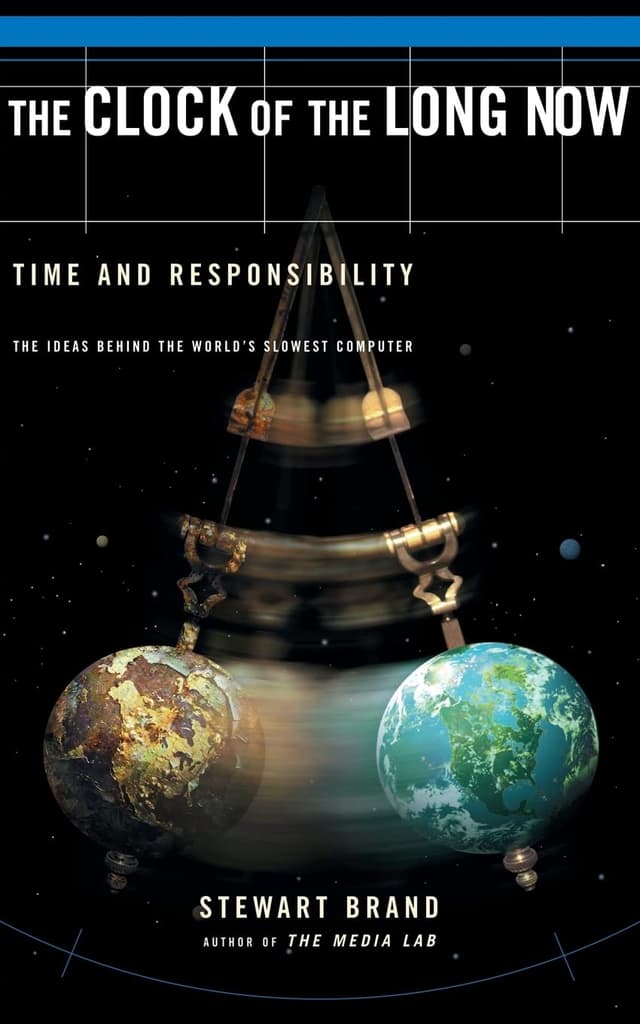Noah Brier | March 19, 2019
Why is this interesting? - Tuesday, March 19
Are you paid to stay on top of things or get to the bottom of them?
Recommended Products

David Epstein explores the science of athleticism, delving into genetics and how various factors influence sports performance.

This book by Stewart Brand discusses concepts of long-term thinking and responsibility, with insights into digital and physical preservation.
Greetings from NYC. Still going strong daily and testing out Substack for delivery. You can now unsubscribe on your own and also share with others. If you have links you think we should read/include, please send them our way. Thanks once again for the feedback. Please keep it coming. Also, apologies the main bit is a little longer today … had a lot to say about this one. We’ll dial in length as we go.
I really liked this post from Richard Huntington aka Adliterate. It’s about the value of deep work, but the gist is captured in this mantra: “You are not paid to be on top of things, you are paid to get to the bottom of them.” (This was inspired by a quote from computer scientist Donald Knuth about email: “Email is a wonderful thing for people whose role in life is to be on top of things. But not for me; my role is to be on the bottom of things.)
Why is this interesting?
If you’ve spent any time working in the age of e-mail (nevermind Slack) you’ve encountered this challenge. One of the things I shared with everyone who started at Percolate for a long time was this post from Y-Combinator founder Paul Graham about the schedule a “maker” keeps vs a manager. The point is that the manager has their days broken into tiny bits, 30 minute or one hour meetings, while the maker needs long uninterrupted focus time to do their work. When the manager forces the maker into their schedule they are surprised that the work can’t get done.
One way to think about this divide is as something computer scientists call exploration vs exploitation. The manager is an explorer, looking at information across many different areas, while the maker is an exploiter, using that information to go deep in just one. It’s a little like the story from the Greek poet Archilochus about the fox and the hedgehog: "the fox knows many things, but the hedgehog knows one big thing" (if you’re not familiar with the parable, here’s a good primer from NPR).
As Brian Christian points out in his book Algorithms to Live By: The Computer Science of Human Decisions, there are actually tons of interesting stuff that lives in this tension. Do you go to the restaurant you like or try the new one that just opened? Should you load up an old favorite on Spotify or see what they’ve chosen for you this week? The answer, as we have all figured out and computer science has proven, is it depends. To figure out the best approach you’ve also got to know the time limit. In simplified terms, if you have lots of time left, exploration makes sense, if you’re approaching a deadline, exploitation is optimal.
This also explains why people like Sports Gene author David Epstein are pushing to stop early specialization. Childhood is prime exploration time and no matter what Malcolm Gladwell’s 10,000 hours might state, the opportunity is to use the abundance of time to stay shallow (Gladwell actually agrees with this). “Childhood,” as developmental psychologist Alison Gopnik explains, “gives you a period in which you can just explore possibilities, and you don't have to worry about payoffs because payoffs are being taken care of by the mamas and the papas and the grandmas and the babysitters.” For the rest of us, the struggle stays real. (NRB)
Chart of the Day:
This one comes from Chris Herring, one of my favorite NBA writers. Because we are in the dregs if the basketball season (just about a month until the playoffs begin) he tried to figure out why the San Antonio Spurs get so many bats at their games (including the famous Manu Ginobli swatting incident that cemented his basketball legacy in a way championships and gold medals never could). (NRB)
Quick Links:
Texas Monthly on the romance of the rails in West Texas. (CJN)
Speaking of Alison Gopnik, if you’re interested in her work this Rationally Speaking podcast episode with her is really excellent. (NRB)
Interesting New York Times piece on how tobacco companies diversified their holdings to include sugary drinks, using the same advertising tactics, and even some of the same science, to help hook kids. “Cigarette companies were frequently introducing new flavored products, and many of the chemicals that went into cherry-scented chewing tobacco and apple-flavored cigarettes found their way into children’s drinks.” (NRB)
Myspace apparently lost all the music uploaded to the site between 2003 and 2015. Once again proving that even with the low cost of storage and ubiquity, digital data still has a shorter shelf life than most physical storage. Reminds me of a quote from digital archivist Howard Besser I read in Stewart Brand’s Clock of the Long Now: “The default condition of paper is persistence, if not interrupted; the default condition of electronic signals is interruption, if not periodically renewed.” (NRB)
This thread is the best explanation I’ve seen yet about the 737 Max issue. (CJN)
British Airways redoing their Club World product. A long awaited move that should bring BA business class to parity with some of the best (DeltaOne, Qatar). Doors on your seat is the new mattress for long haul flying. Two questions: how long will the rollout take? Why would anyone buy BA First? (CJN)
A piece on the Continental in Austin, one of my favorite venues in the world. (CJN)
WSJ reports that Keurig and AB InBev are launching a K-cup home bartending marching. “The Drinkworks machine is offered for preorder for $299 and is on sale in St. Louis for $399. Using liquid-filled pods, it adds water and carbonation to serve up cocktails like a Moscow Mule, an Old Fashioned, a mojito or a gin and tonic—plus three brands of beer and cider. The machine chills drinks but doesn’t add ice.” (NRB)
Thanks for reading,
Noah (NRB) & Colin (CJN)
